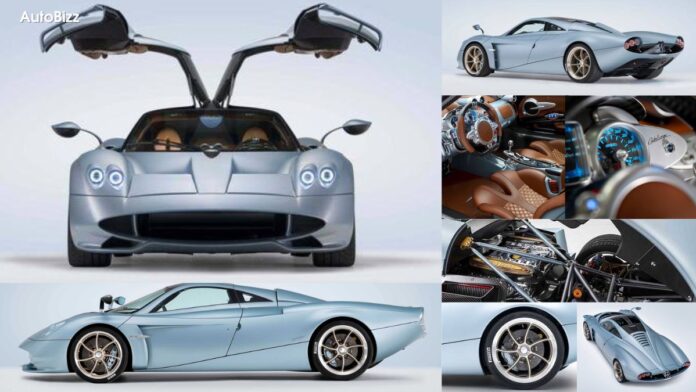All five units have already been sold.
The Huayra, Pagani’s successor to the famous Zonda, was originally revealed in 2012. However, in true Pagani form, the mid-engine carbon-bodied supercar is still available in limited-edition and one-off versions. The Huayra Codalunga is the most recent iteration.
Pagani’s Grandi Complicazioni special projects division created the Codalunga, which means “long tail” in Italian. It began as a single client’s idea, which grew into a modest manufacturing run of cars over the period of two years. The Codalunga includes a reworked fascia and a completely new back section with a rear hatch that covers over 12 square feet, based on the Huayra’s dimensions. Underneath is an upgraded version of the AMG twin-turbo 6.0-liter V-12, which produces 840 horsepower and 811 pound-feet of torque. A new ceramic-coated titanium exhaust system that weighs only 9.7 pounds is also available. The car is only 2822 pounds in total, which is about the same weight as a new Subaru BRZ.
Read More: 10 Best-Looking Minivans Ever Made
Pagani claims that the design of the Codalunga was influenced by Italian race vehicles and coachbuilt machines from the 1960s.
“To develop lines that were even more graceful than the coupe, we made the Huayra Codalunga longer and smoother, as if it had been caressed and shaped by the wind,” founder Horacio Pagani said in a statement. “We were inspired by the long tails that raced at Le Mans in the 1960s and had really beautiful lines. We removed rather than added to the Huayra Codalunga because it only has a few key parts. Simplifying isn’t easy, and this vehicle is the product of a long search for basic concepts.”
Read More: Ferrari Roma V12 Test Mule Caught Going Flat Out On Track
The Huayra Codalunga has a starting price of € 7 million, or about $7.4 million at current exchange rates. That doesn’t matter, because all five copies have already been sold. Pagani claims it was able to homologate one automobile for usage on our roads, thus one of the cars was sold to a customer in the United States. Hopefully, rather than being stored in a collection, it will be driven.

